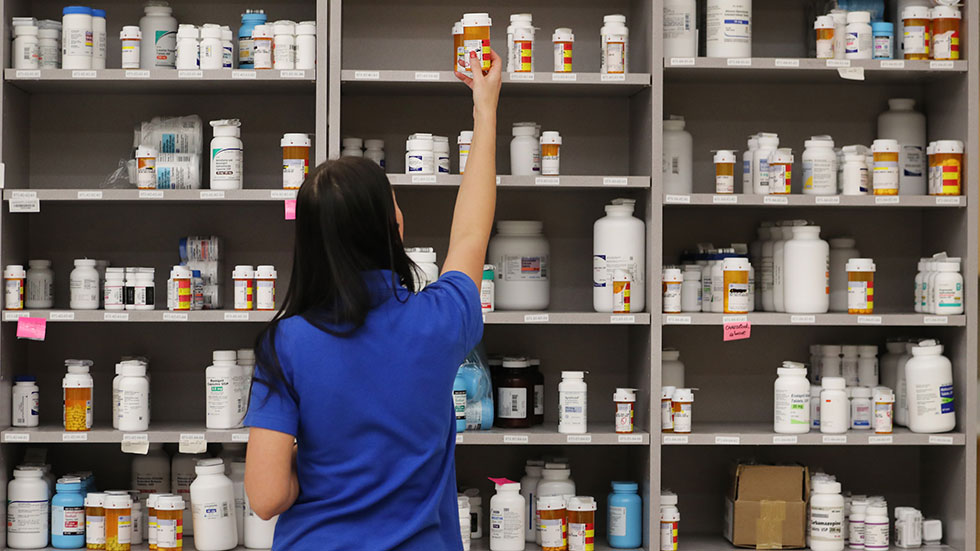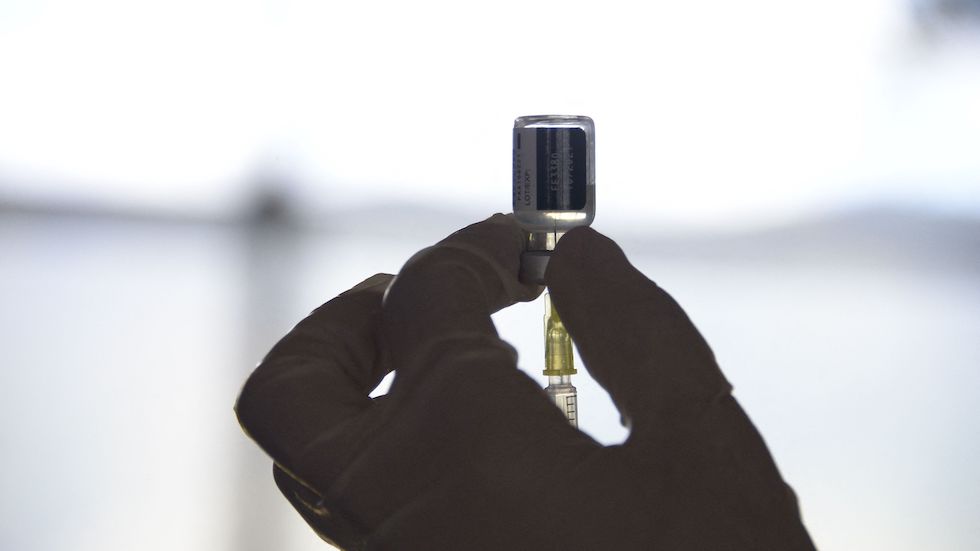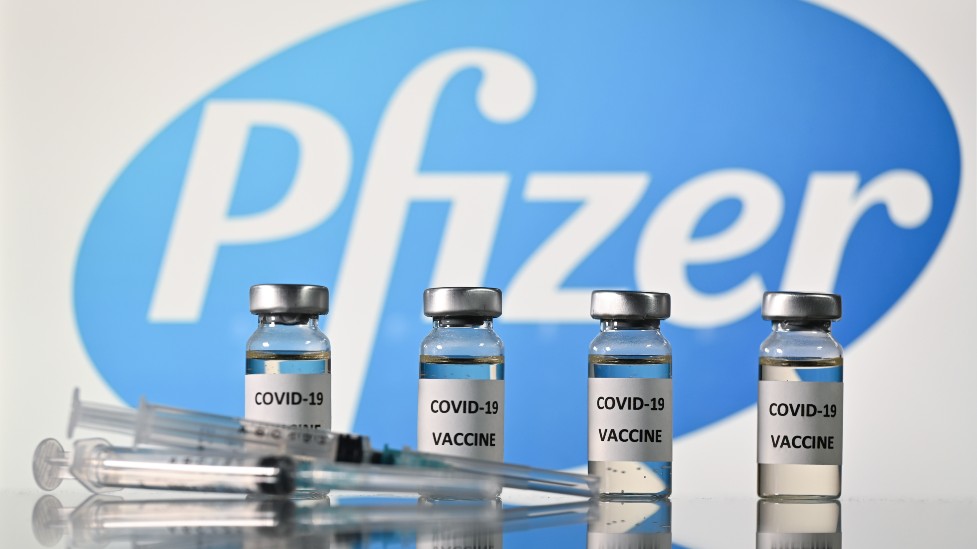Overnight Health Care — Democrats secure a deal on drug prices
Welcome to Tuesday’s Overnight Health Care, where we’re following the latest moves on policy and news affecting your health. Subscribe here: digital-staging.thehill.com/newsletter-signup.
Some of the “Sesame Street” gang, including Big Bird and Elmo, will join CNN for a town hall focused on answering parents’ and children’s questions about the vaccine on Saturday.
Democrats have an agreement on lowering drug prices to include in the Build Back Better framework, seemingly marking the end of one battle as negotiations move forward.
For The Hill, we’re Peter Sullivan (psullivan@digital-staging.thehill.com), Nathaniel Weixel (nweixel@digital-staging.thehill.com) and Justine Coleman (jcoleman@digital-staging.thehill.com). Write to us with tips and feedback, and follow us on Twitter: @PeterSullivan4, @NateWeixel and @JustineColeman8.
Let’s get started.
It happened: Dems reach drug pricing deal

After several days (weeks? months?) of furious negotiating, Democrats said they have come to an agreement on a plan to lower prescription drug prices, seemingly solving one of the major stumbling blocks on the road to a vote on the $1.75 trillion Build Back Better legislation.
The agreement is less far-reaching than earlier Democratic proposals, but it still represents progress on an issue the party has campaigned on for years.
Details: The agreement would allow Medicare to negotiate drug prices in limited instances, prevent drug companies from raising prices faster than inflation and cap out-of-pocket costs for seniors on Medicare at $2,000 per year.
One of the key compromises leading to a deal was limiting the scope of Medicare’s ability to negotiate lower drug prices, which has long been a signature Democratic proposal. Lawmakers agreed to limit Medicare’s ability to negotiate to older drugs that no longer have “exclusivity,” meaning the period when they are protected from competition. Earlier versions of Democratic bills would have allowed negotiation for newer drugs, too.
The deal would allow negotiation after nine years for many drugs, known as small molecule drugs, and after 12 years for more complex drugs known as biologics, according to a summary obtained by The Hill.
If drug companies refuse to negotiate, they would face an excise tax as a punishment, a provision that has been controversial with some moderates.
Medicare could negotiate up to 10 drugs starting in 2025 and up to 20 drugs in 2028 and beyond, according to the summary.
Insulin copays would be capped at $35 per month.
CDC panel endorses vax for young kids

The process for getting COVID-19 vaccines to school-age children will most likely wrap up later today; in one of the final steps, a Centers for Disease Control and Prevention (CDC) advisory panel recommended the agency move forward with giving Pfizer-BioNTech’s COVID-19 vaccine to children ages 5 to 11.
The agency’s Advisory Committee on Immunization Practices voted unanimously, 14-0 in favor of the recommendation.
The Food and Drug Administration (FDA) has already authorized the vaccine for children in that age group, and CDC Director Rochelle Walensky is expected to sign off on the recommendation later Tuesday, allowing vaccinations to begin as soon as possible.
“Today is a monumental day in the course of this pandemic and one that many of us have been very eager to see ever since your vote … last year recommending COVID-19 vaccination for those 16 and older,” Walensky told advisers at the start of the meeting.
Patience urged: But the process for vaccinating children will be different than it was for adults, so shots may not necessarily be available immediately after Walensky endorses the recommendation.
The vaccine will be administered in two 10 microgram doses — a third the amount given to people over the age of 12. To differentiate, the kid-sized doses will come in different packaging and be administered using child-specific needles. A smaller dose, a different formulation in different packaging with different needles — the process of packing and shipping it out will take time.
White House coronavirus response coordinator Jeff Zients said the vaccination effort will be fully operational by Nov. 8.
COLORADO GOV WARNS OF RATIONED CARE
Gov. Jared Polis (D-Colo.) on Monday warned that surging COVID-19 cases in unvaccinated people was bringing Colorado closer to rationing hospital care, even as the state has reached a partial vaccination rate of 80 percent.
“It’s the 20% who haven’t been vaccinated that are filling up our hospital wards,” said Polis at a news briefing, according to Bloomberg. “We would have none of these hospital capacity issues, or orders would be operative, if everybody was vaccinated.”
The governor said Colorado may soon have to ask the Federal Emergency Management Agency (FEMA) to assist with overrun hospitals.
Polis lamented that these problems are particularly tragic because they are “essentially entirely preventable.”
On Sunday, Polis signed two executive orders in an effort to help his state’s hospitals. One order allows hospitals emergency departments to turn away patients, directing them to other facilities, while the other clarifies when “Crisis Standards of Care” can be activated to ration care. Both orders are set to expire in a month, though they can be reactivated, Colorado Public Radio (CPR) reported.
OKLAHOMA GOV PETITIONS PENTAGON OVER MANDATE
Oklahoma Gov. Kevin Stitt (R) is asking Defense Secretary Lloyd Austin to suspend the Pentagon’s COVID-19 vaccine mandate for members of the Oklahoma National Guard.
In a letter to Austin, Stitt said Tuesday that the mandate “violates the personal freedoms of many Oklahomans, as it asks them to potentially sacrifice their personal beliefs in order to not lose their jobs.”
“These are patriotic citizens who are willing to put their lives on the line to protect others in our communities during times of greatest need,” Stitt said.
In his letter, Stitt told Austin that he estimates over 800 Oklahoma guardsmen “have not and do not plan” on getting vaccinated, representing 10 percent of the total force.
All active duty Army troops have to be vaccinated by Dec. 15, while Army reservists and National Guard units have to be fully vaccinated by June 30, 2022.
The governor said it was “irresponsible” to impose the mandate, which could “potentially limit the number of individuals that I can call upon to assist the state during an emergency.”
Pfizer expects $36 billion in sales from vaccine

The COVID-19 vaccine from Pfizer and BioNTech is the highest-selling drug in the world.
Pfizer expects to earn about $36 billion in revenue this year from the COVID-19 vaccine developed with BioNTech, the company announced Tuesday, an increase from the previous estimate of $33.5 billion.
During an earnings call, CEO Albert Bourla said the vaccine contributed $13 billion in revenue during the third quarter alone, bringing total revenue this year to $24.3 billion.
The company forecasts another $29 billion in sales in 2022.
Volume, not price: Pfizer has the capacity to produce up to 4 billion doses in 2022 and already has contracts in place for 1.7 billion, meaning that most of the revenue the company earns is from the sheer volume of vaccines, rather than the price. Bourla noted that to date, Pfizer has produced 2.6 billion doses and shipped 2 billion doses to 152 countries or territories. The company is on track to produce 3 billion doses by the end of this year.
Equity: Bourla said at least 1 billion doses will go to middle- and low-income countries this year. But public health experts have expressed concern that wealthier nations have monopolized much of the vaccine supply, leaving poorer countries without access.
Seemingly acknowledging this, Bourla said Pfizer is giving low- and middle-income countries steep discounts on their vaccines, and suggested they need to place orders for next year to avoid wealthier countries securing most of the supply.
WHAT WE’RE READING
- As Covid-19 vaccines approach for young kids, many parents plan to wait (The Wall Street Journal)
- ‘There was no plan’: Throwing spaghetti at the wall to overcome Covid-19 vaccine hesitancy (Stat)
- The pandemic is still making us feel terrible (The Atlantic)
- The vaccines have kept older Americans out of the hospital (Axios)
STATE BY STATE
- Arizona COVID-19 updates: Cases increase at Arizona universities (Arizona Republic)
- Two districts account for nearly 90% of Colorado’s very limited COVID testing in schools (The Colorado Sun)
- Few Minn. counties require COVID vaccines for jail workers (Minnesota Public Radio)
OP-EDS IN THE HILL
- Lessons learned from COVID can transform how the world cures diseases
- Upcoming holidays present an opportunity to help the unvaccinated
That’s it for today, thanks for reading. Check out The Hill’s health care page for the latest news and coverage. See you Wednesday.
Copyright 2024 Nexstar Media Inc. All rights reserved. This material may not be published, broadcast, rewritten, or redistributed..











